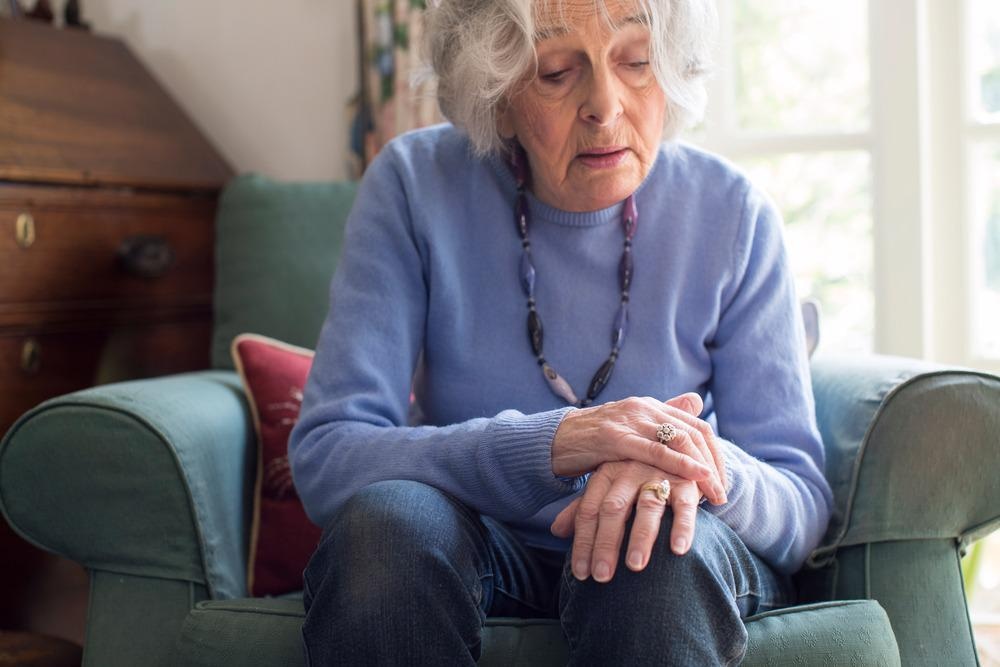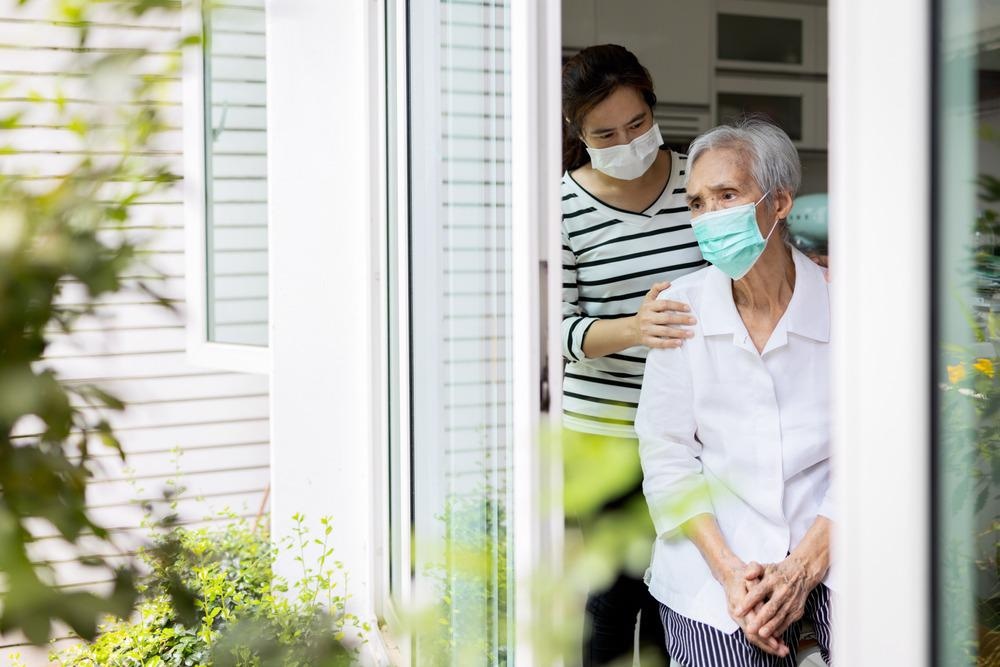
The coronavirus disease 2019 (COVID-19) pandemic has devastated entire regions of the world, leaving over 6 million dead at last count. The heaviest impact has been on those with underlying illnesses, and those with advanced age, heavier body weight, and cardiovascular risk factors. in fact, over half of COVID-19 patients have such illnesses.
The long-term complications or sequelae of COVID-19 have been increasingly reported, ranging from mild tiredness to debilitating fatigue, chest pain, and neurological symptoms. Among the latter has been the concern as to whether COVID-19 affects patients with Parkinson’s disease (PD). The latter is among the most common neurodegenerative disorders among the elderly worldwide, characterized by bradykinesia or a reduction in movement, rigidity, resting tremor, and postural instability.
The common factors of advanced age and cardiovascular disease in both COVID-19 and PD make it important to examine the association between these conditions. Recent research shows that the virus can affect the brain, gaining entry via the olfactory nerves. It could also affect the vagus nerve, and other brainstem nuclei, thus entering the central nervous system.
The involvement of the brainstem would also explain the severe respiratory symptoms seen in a sizable minority of cases.
In earlier viral pandemics such as the Spanish flu of 1918 to 1920, parkinsonism was observed to become more common as a post-encephalitic sequel, following an epidemic of encephalitis lethargica. Again, avian flu led to parkinsonism in many survivors. Transient or long-term parkinsonism is also reported to follow many other viral infections, including coxsackie virus, West Nile virus, and the Japanese encephalitis B virus.
In most cases, it is attributed to the occurrence of neuroinflammation with or without hypoxic brain injury, associated with injury to the basal ganglia, either structural or functional. Other research suggests that in addition to genetic factors, viral infections contribute to the risk of PD over the long term.
Possible Links Between COVID-19 and PD
Multiple observations suggest a link between COVID-19 and neurodegeneration. Firstly, SARS-CoV-2 can enter the central nervous system (CNS) via the nasal epithelium, causing neuronal death. Hyposmia or anosmia are reported in both preclinical PD and COVID-19. COVID-19 may cause injury to the basal ganglia, via thrombotic lesions.
Moreover, cross-reactive antibodies to endemic seasonal human coronaviruses at higher levels in PD patients compared to healthy controls could suggest a role of viral infection in the pathogenesis of this condition. Hyper-inflammation may activate resident immune cells in the CNS or trigger immune cell infiltration to the brain, causing them to attack and kill neurons and associated cells.

Image Credit: Daisy Daisy/Shutterstock.com
Association Between PD and COVID-19
Since PD is associated with weakness of the respiratory muscles, abnormal posture and rigidity of respiratory muscles, and poor chest wall movement during respiration, PD patients who develop severe COVID-19 could be at a higher risk of not responding to mechanical ventilation, if this becomes necessary.
Moreover, it might seem that the presence of chronic inflammation, due to the presence of cardiovascular risk factors such as obesity, hypertension, and end-organ disease, would predispose to a cytokine storm when the PD patient encounters the severe acute respiratory syndrome coronavirus 2 (SARS-CoV-2), the pathogen behind the current pandemic.
Pneumonia is the most common cause of hospitalization among PD patients, and of death, but despite the common association of COVID-19 with pneumonia, there is little to show that COVID-19 increases the risk of death in PD patients.
Other putative mechanisms whereby COVID-19 may be thought to worsen PD include the risk of a systemic hyperinflammatory response to the infection, the increased frailty of PD patients compared to the general population, and possible interactions between the dopaminergic neurons and those regulating the renin-angiotensin system.
Does PD Increase the Risk of Severe COVID-19?
Some studies show that the presence of PD does not increase the risk of testing positive for COVID-19. The age group of PD patients affected by COVID-19 is similar to that of the general population.
Again, in most cases, the infection produces no to mild symptoms and few fatalities. The rate of hospitalization and mortality rate resembles that of the general population.
Does COVID-19 Increase the Severity of PD Symptoms?
When compared to non-COVID-19 patients, PD patients with COVID-19 had more severe motor symptoms and more on-off fluctuations, as well as non-motor symptoms.
Motor symptoms worsened with COVID-19, including an increase in the off-time over a whole day, compared to non-COVID-19-PD patients. The increase is so notable as to prompt an increase in dopaminergic medication dosage in up to one in three cases.
Diarrhea is more common among COVID-19 patients with PD, occurring in half the cases. This could disrupt normal dosing with levodopa and other dopaminergic medications. This contributes to the worsening of motor symptoms in the set of COVID-19-PD patients, along with the infection itself. In fact, diarrhea may fully explain the increase in the off-time among these patients compared to PD patients without COVID-19.
However, COVID-19 by itself, rather than the presence of diarrhea, accounts for deterioration in the motor on-off fluctuations.
The adverse effect of COVID-19 on PD symptoms could be because of high fever, respiratory difficulty and hypoxia, involvement of the clotting system, myalgias, and other stressors. The risk of respiratory impairment could be greater due to the bradykinesia and rigidity that may be supposed to reduce the vital capacity and peak expiratory flow.
Pain, sleep disruption and tiredness could also worsen certain symptoms of PD. Especially prominent is the effect of anxiety and isolation. In case of severe infection, hospitalization could lead to the need for mechanical ventilation, especially if the PD patient is older and has more than one comorbidity. This is made more difficult if the patient is on other therapies, such as deep brain stimulation or intrajejunal levodopa infusion, and mortality may be higher in such cases.
Non-motor symptoms like fatigue are due to the COVID-19 itself, perhaps because of systemic inflammation. Urinary symptoms like urge incontinence and nycturia worsen both because of the increased on-off motor fluctuations and the presence of the infection itself.
Cognitive impairment was not observed, and autonomic functions remained unaffected. Non-motor symptoms also show an overall worsening with the onset of COVID-19. However, psychiatric symptoms worsened among those with pre-existing psychiatric illnesses, mostly insomnia, and depression. Such patients were more likely to be younger and female.

Image Credit: CGN089/Shutterstock.com
Effect of the Pandemic on PD Patients
The COVID-19 pandemic caused PD patients to experience many changes in the way they received medical care. Teleconsultations came into vogue, as resources were reallocated to meet emergency patients. This was accompanied by some limitations such as the difficulty of assessing the mood or cognitive status, or rigidity level, via telemedicine.
DBS proved feasible via remote computer programs that could assess the patient's symptoms, so as to enhance motor performance in these patients. The COVID-19 vaccines could also help protect PD patients despite some short-term intensification of symptoms.
Conclusions
There is no evidence that PD increases the risk of severe COVID-19. “While a role for the virus in causing or exacerbating Parkinson’s disease appears unlikely at this time, the aggravation of specific motor and non-motor symptoms is reported.”
This should mandate scrupulous compliance with currently adequate PD medications to avoid worsening of symptoms. Moreover, the presence of diarrhea should prompt treatment providers to assess patients for the presence of dehydration, which could be due to fever, diarrhea, or loss of appetite.
Further research will be required to show how far the direct effects of viral invasion in the brain account for these findings, and how much is due to systemic inflammation. Careful follow-up of COVID-19 survivors may help elicit a link between this infection and future PD or other neurological disorders in the future.
“Through PD tailored home equipment, adjustments, and routine habit integration, patients may be able to manage the disease well during and post the COVID-19 pandemic.”
References:
Further Reading
Last Updated: Apr 4, 2022